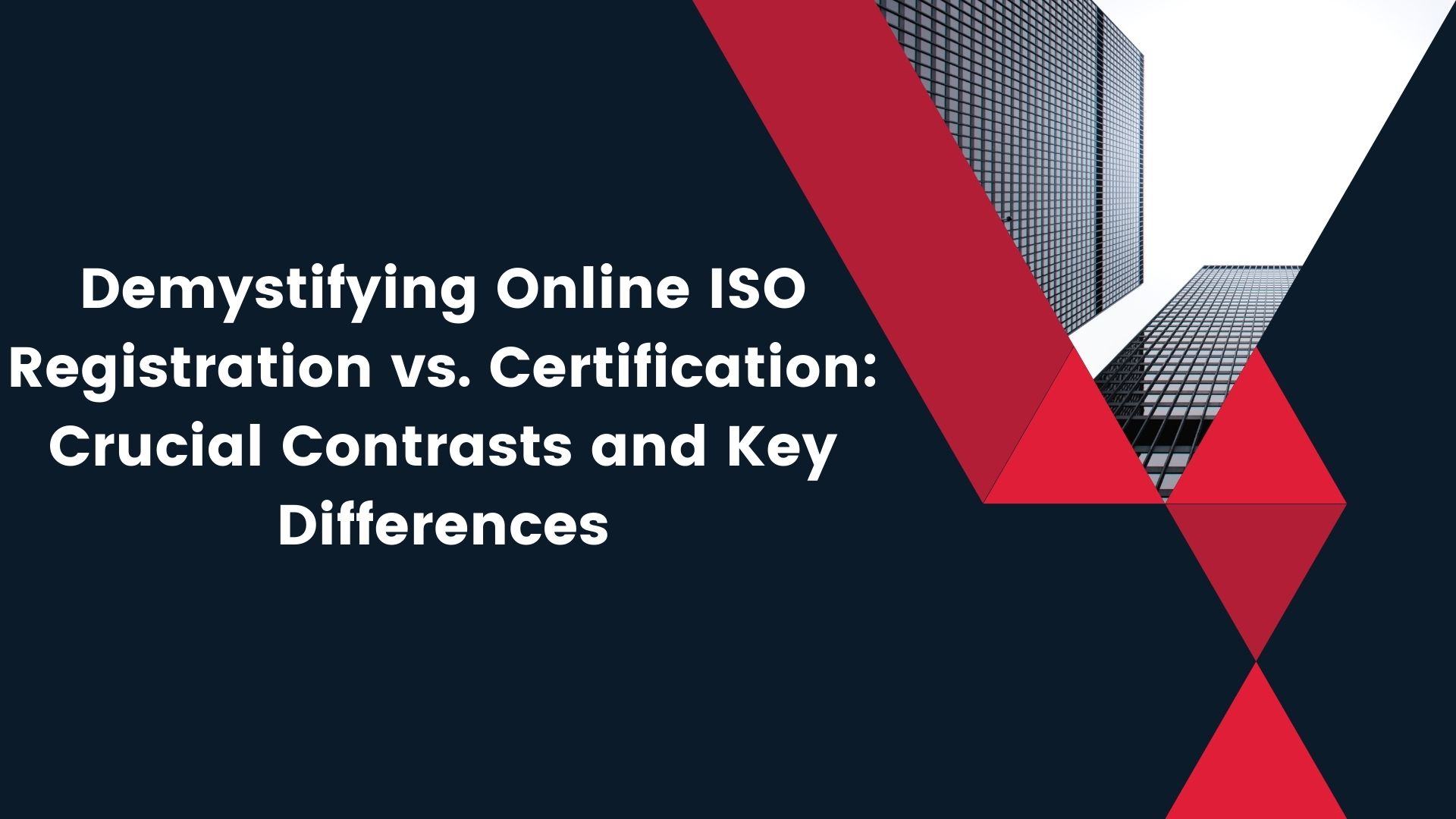In today’s competitive business landscape, adherence to quality management standards is not just an advantage but often a prerequisite for success. ISO (International Organization for Standardization) standards are globally recognized benchmarks that validate an organization’s commitment to quality, efficiency, and customer satisfaction. However, there’s often confusion surrounding the terms “ISO registration” and “ISO certification,” and understanding their nuances is crucial for businesses seeking to implement these standards effectively.
Understanding ISO:
The International Organization for Standardization (ISO) establishes and publishes international standards across various industries. These standards aim to ensure that products, services, and processes are safe, reliable, and of high quality. ISO certifications demonstrate an organization’s compliance with these standards, reflecting its commitment to meeting specific criteria for quality management.
What is ISO Certification?
ISO certification, also known as third-party certification, involves a comprehensive assessment by an independent certification body. The certification process includes an in-depth audit of the organization’s processes, systems, and compliance with ISO standards. Upon successful evaluation, the certification body issues an ISO certificate, affirming that the organization meets the specified requirements.
The Role of ISO Registration:
ISO registration, on the other hand, typically refers to the initial step of declaring the organization’s intent to comply with ISO standards. This process involves registering with a certification body or registrar to express the intention to pursue certification. It serves as a formal acknowledgment of the organization’s commitment to implementing the necessary measures for compliance.
Key Contrasts:
Evaluation Process:
ISO Registration:
It involves an organization’s initial declaration of intent to comply with ISO standards without a detailed audit.
ISO Certification:
This requires a comprehensive assessment by an independent certification body to verify the organization’s adherence to ISO standards through rigorous audits.
Recognition and Credibility:
ISO Registration:
Offers limited external validation and recognition, primarily serving as an initial step towards ISO certification.
ISO Certification:
Carries significant weight in the market, offering enhanced credibility and recognition as it involves an independent verification of an organization’s compliance with ISO standards.
Process and Timeframe:
ISO Registration:
A relatively quicker process, serving as an initial phase before pursuing full certification.
ISO Certification:
Involves a more extensive and time-consuming evaluation, including audits and reviews, before the issuance of the certification.
Scope of Implementation:
ISO Registration:
Acts as a preparatory step, allowing organizations to identify gaps and initiate necessary changes to align with ISO standards.
ISO Certification:
Represents the culmination of a thorough implementation process, demonstrating full compliance with ISO standards across the organization.
Making an Informed Choice:
Deciding between online ISO registration and certification involves considering various factors:
- Organizational Goals: Whether seeking immediate recognition or gradually working towards certification.
- Resource Availability: Assessing available resources for a comprehensive certification process or starting with registration as a preparatory step.
- Market and Client Requirements: Understanding the market demands and client expectations regarding ISO compliance.
Both online ISO registration and certification are valuable steps towards quality management excellence. They cater to different stages of an organization’s journey, offering flexibility and opportunities for growth based on individual needs, resources, and strategic objectives.
Choosing the Right Path:
Both ISO registration and certification play vital roles in an organization’s journey towards achieving quality management standards. While ISO registration serves as an initial commitment towards compliance, ISO certification offers comprehensive validation, enhancing an organization’s credibility and market competitiveness.
Businesses must assess their readiness, resources, and long-term objectives when deciding between ISO registration and certification. For some, starting with registration might be a prudent initial step to understand and address compliance gaps. Others may opt for direct certification to swiftly establish their credibility in the market.
Note: You Can Apply for ISO 27001 Certification
Conclusion
Whether choosing ISO registration or certification, the ultimate goal remains the same: to enhance quality, improve processes, and demonstrate a commitment to meeting international standards, thereby gaining a competitive edge in the global marketplace. Each path has its merits, and the choice largely depends on the organization’s priorities, resources, and strategic objectives.
Understanding the differences between ISO registration and certification is pivotal for businesses aiming to embark on the path towards quality management excellence, ensuring informed decision-making and successful implementation of ISO standards.

